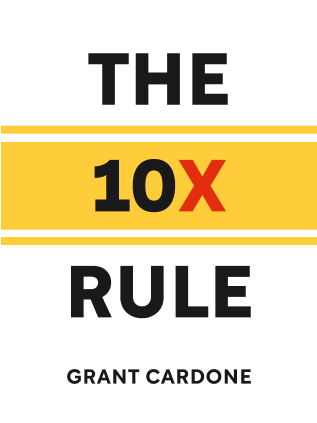

This article is an excerpt from the Shortform book guide to "The 10X Rule" by Grant Cardone. Shortform has the world's best summaries and analyses of books you should be reading.
Like this article? Sign up for a free trial here .
What is a fear of criticism? Should you allow others’ opinions to inform your own action?
If you’re concerned about being judged, you have a fear of criticism. But in the 10X system, criticism means you’re doing big things and that’s moving in the right direction.
Read more about how a fear of criticism is normal, but you should think of criticism as a good thing.
Fear of Criticism
Like fear, criticism is another sign you’re headed in the right direction. It’s a common result of the attention you get from becoming successful or taking extreme efforts.
You’ll be judged by those who feel threatened by your success (they believe the supply of success is limited), those who feel inadequate because they’re taking minimal action, or those who are simply envious. Sometimes, people deliver criticism in the form of advice: they tell you you should take more time off, stop working so hard, or stop going all out for certain clients who aren’t worth it.
But if you back off due to a fear of criticism, you’ll only shortchange yourself. Remember, success isn’t about being popular, it’s your duty. Further, when you keep working at 10X levels, your critics may come to admire you. In any case, the best response to criticism is 10X success.
Making Excuses
Everyone uses excuses—we all have favorites we use repeatedly. Many people reading this book are making excuses at this point for not adopting the 10X Rule.
Excuses are reasons you come up with justifying what you do or don’t do. Popular excuses include:
- I don’t have the money.
- I have kids.
- I’m married/not married.
- I’m overworked.
- I don’t have time to take classes.
- I have a terrible boss.
- The economy is bad.
- Other people will judge me (fear of criticism).
But excuses aren’t the real reasons motivating what you do; they’re a rewrite of the facts to make you feel better later. For example, you might blame traffic for making you late to work. But the real reason you’re late is not planning your time so you can leave home earlier and avoid traffic.
You can’t create change or improve any situation until you acknowledge the real reason for your actions or inactions. When you make excuses you’re refusing to take responsibility for your life (as discussed in Chapter 6).
Give Up Excuses
No excuse will ever make you more successful. In fact, when you excuse something you did or didn’t do, you create an opportunity for someone else to find a solution instead of you.
If you believe success is your duty rather than an option, you must commit yourself and your business to never making excuses for anything.
Overcome Excuses
Everyone has favorite excuses or reasons for what they do or don’t do. But excuses usually aren’t the real reasons motivating what you do; they’re a rewrite of the facts to make you feel better later.
- What excuse do you find yourself using frequently, or what’s an excuse you’ve used in the past week? (For instance, the traffic is terrible, my boss hates me, I don’t have time to exercise).
- What’s the real reason behind your excuse (for instance, maybe the real reason you’re late for work isn’t traffic, but oversleeping).
- How can you reframe the situation to take responsibility and solve the problem?

———End of Preview———
Like what you just read? Read the rest of the world's best book summary and analysis of Grant Cardone's "The 10X Rule" at Shortform .
Here's what you'll find in our full The 10X Rule summary :
- How to set goals that are 10 times bigger than average
- How to use extraordinary thinking to achieve extraordinary results
- The 3 myths that will sabotage your chances of success if you let them






